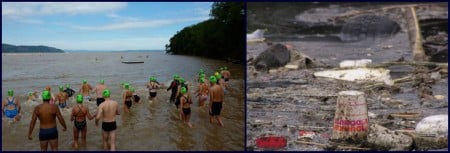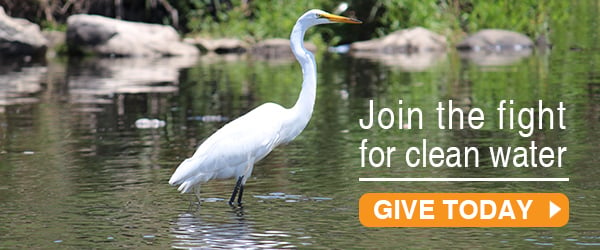Keeper Groups Criticize Proposed Weakening of Recreational Water Quality Standards

View more images on our Flickr site
Riverkeeper and partner Waterkeeper Alliance organizations in the region submitted comments to the EPA expressing extreme concern about the agency’s draft Recreational Water Quality Criteria (RWQC), which would set a new baseline for states to follow in setting standards for waters classified as suitable for swimming. These standards are required to ensure protection of public health and improvement of water quality in areas affected by sewage discharges and other sources of water pollution.
Beaches are a critical part of our nation’s economy and are the top vacation destination in the country. Yet millions of people become sick every year as a result of polluted recreational waters, a trend that has been increasing steadily over the past several decades according to the Center for Disease Control (CDC). These illnesses can cause diarrhea, nausea, vomiting, infections of the ear, eye, skin and lung, as well as life threatening ailments. The groups are concerned that the proposed recreational criteria, if adopted, will be less protective of public health, will not require polluters to stop polluting, and will continue to mask the true impact of sewage on our waterways.
Key among the groups’ concerns are:
- According to EPA’s Draft RWQC, an illness rate of 1 in 28 beachgoers is an acceptable risk. This level of risk reflects a weakening of the current standard. It is unacceptable and does not fulfill EPA’s duty to protect public health and improve water quality.
- EPA’s assessment of the increased health risks posed to children, the elderly and the immuno-compromised is inadequate and will not provide them with sufficient protection from illness.
- The Draft Criteria allows for infrequent water quality monitoring (5 samples over 90 days) and the averaging of water quality data in a manner that masks the true impact of sewage pulses such as those experienced at many locations in our region during and after rainfall. This approach blatantly ignores the reality of how the public recreates in our public waterways – no one swims in “average” water.
- The Draft RWQC does not provide any incentives for states to move forward with rapid methods. At a minimum, rapid based methods should be required nationally at high use beaches and areas with known pollution problems by a date certain and no later than 2015.
The comments were signed by Hudson Riverkeeper, NY/NJ Baykeeper, Hackensack Riverkeeper, Long Island Soundkeeper and Lake George Waterkeeper.
Letter to EPA on Water Quality Criteria (pdf 275K)

